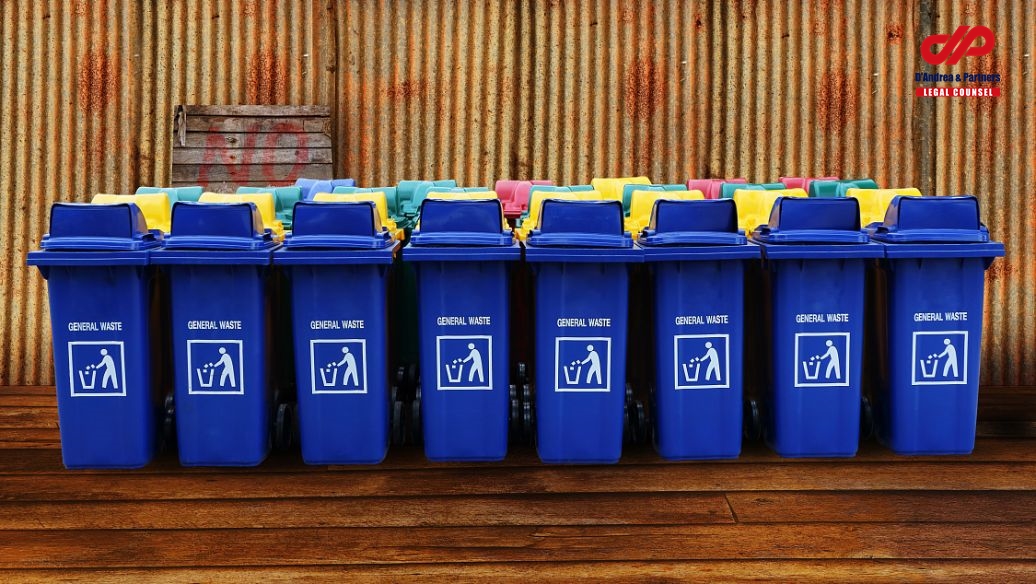The Nanjing government will officially implement the “mandatory classification” of domestic garbage starting from November 1st, 2020 onwards. In April of this year, Nanjing selected 64 communities and 101 units to carry out the waste classification pilot scheme. Looking back to the beginning of Shanghai’s mandatory garbage classification in 2019, the reality of the situation was not very pleasant. From the initial complaints and disputes to the present day sense of calm, many cannot help but believe that domestic enterprises are making up for past shortcomings in regards to compliance, which is similar to the process of waste classification in China.
For example, at the beginning, Chinese enterprises often ignored the issue of labor compliance in terms of labor disputes, which led to illegal layoffs and incorrect calculations of economic compensation. With the enhancement of employees’ awareness of rights protection and the increase of labor dispute cases, enterprises began to better explore how to fit within the legal provisions throughout every step of the employment relationship.
- Is non-compliance an option for companies?
In contrast to the debate on the necessity of waste classification, the evolution of legal compliance in China is quite unique.
As the world’s second largest economy, Chinese enterprises need to combine their own characteristics and carry out effective compliancy operation, so as to gradually move towards internationalization. In regards to waste classification, the likely outcome of non-compliance will result in detrimental environmental problems in the immediate future as well as polluting the environment of future generations.
According to the Regulations of Nanjing Municipality on the Administration of Domestic Waste, the system of the “person in charge of management” shall be implemented for the classified delivery of domestic waste. “Residential areas and rural residential areas implement the system of fixed time and fixed-point centralized delivery of domestic waste.” After studying the living characteristics of local residents, the first step of waste classification is to launch waste classification regulations, therefore, in combination with the development characteristics of Chinese enterprises, the compliance of enterprises may be gradually internationalized.
Fortunately, for compliance, the Chinese government has made an unequivocal policy: compliance comes first. While Chinese enterprises have to comply with the requirements of globalization, their requirements for compliance are also increasing.
- How to comply?
Along with the means in which waste classification is studied, how will compliance be conducted in China? Company compliance has been imported into China gradually from developed countries in Europe as well as America. After 40 years of reform and opening up, most of the current legal regulatory systems related to compliance in China have converged with those of developed countries, and this trend of convergence is increasing.
China must thoroughly master and apply the current international economic practices and rules before it can constructively participate in the improvement, adjustment and creation of existing international economic practices. Observing the current international economic conventions, and creating new conventions and rules are the only means of adopting an effective culture of company compliance in China. In addition, the compliance of Chinese enterprises should follow the development direction of Chinese society.
- The Difficulties Associated With Compliance.
One of the reasons why waste classification has been such a controversial topic of late relates to its “technical content”, that is, dry waste, wet waste, recyclable waste and hazardous waste. In view of the diversity of Chinese cooking methods and excessive packaging, people often think about the accurate classification of waste. The same challenge applies to a considerable extent to compliance.
Professionals adept in legal compliance, adept in the English language, maintaining solid communication between China and the West, as well as a considerable degree of understanding of the relevant legal systems and actual business operations in Europe and the United States, an objective and open international vision are all deemed to be essential tools for the foreseeable future.
Globalization has always been a mainstream objective, and international economic practices and compliance, as the cornerstone of trust and transactional security in the process of world economic globalization, should remain the mainstream.
Just as the new waste classification policy will ultimately benefit the citizens of Nanjing, professionals in charge of compliance should adhere to their firm belief in globalization, conscientiously adhere to their compliancy requirements, maintain an objective and open international vision, and step by step measure the boundless road of compliance.
*This article was published on the Nanjinger magazine on September 2020.


